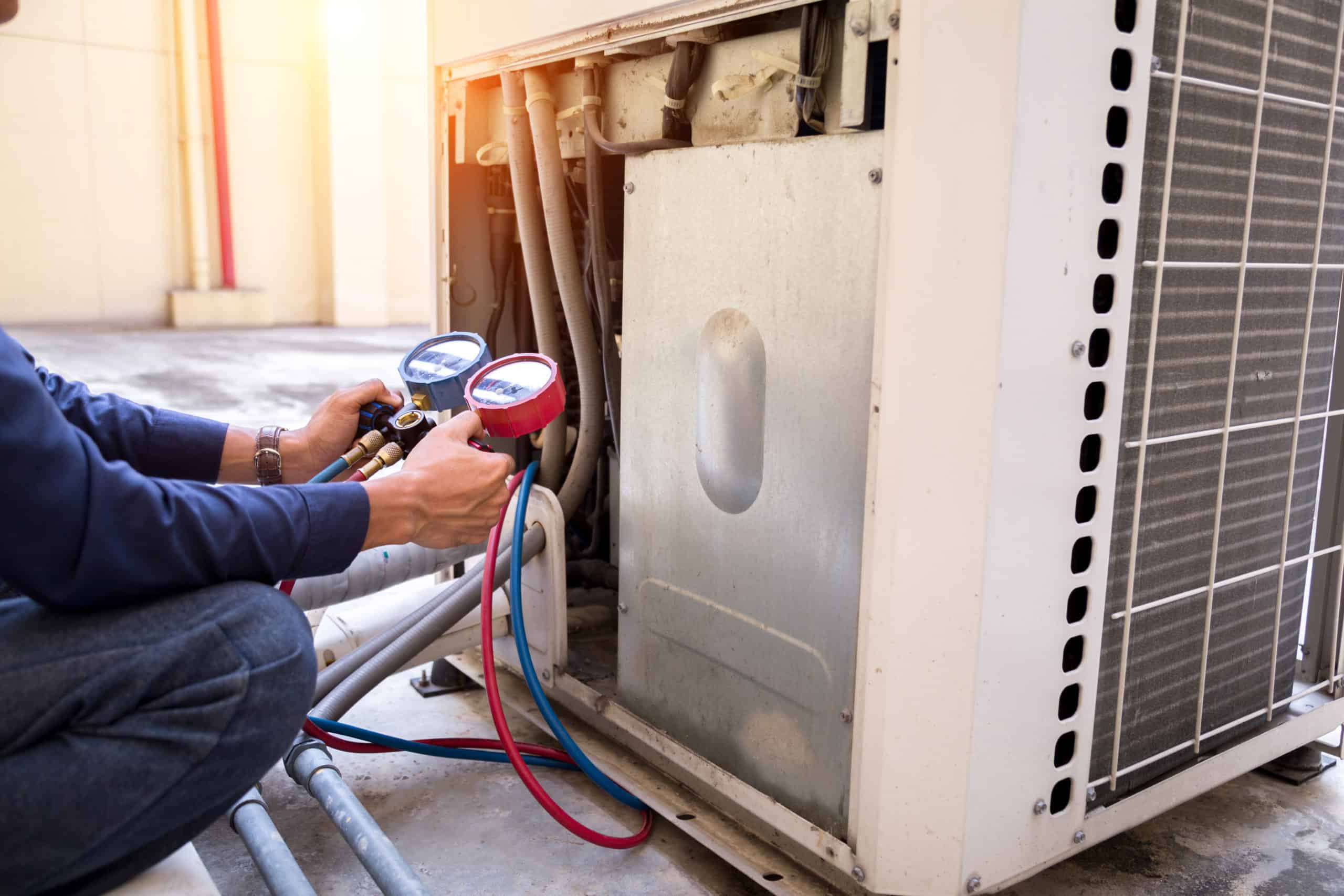Signs Your Heat Pump Needs Repair
.A heat pump is an important part of your home’s heating and cooling system. It works hard year-round to keep your home comfortable, but like any complex system, it can have problems. Spotting the signs that your heat pump needs repair is key to keeping it running efficiently and avoiding costly breakdowns. Here’s how to know when you need professional help.
1. Strange Noises
Unusual Sounds: Your heat pump should run quietly. If you hear weird noises like grinding, squealing, or banging, it could mean something is wrong. For example, grinding noises might mean the motor bearings are worn out, while squealing sounds could suggest problems with the fan belt or compressor.
Solution: If you hear any strange noises, get a professional to check your heat pump. Ignoring these sounds can lead to bigger issues and higher repair costs.
2. Reduced Heating or Cooling Efficiency
Inconsistent Temperature: If your heat pump isn’t heating or cooling as well as it used to, it might be struggling. You might notice some rooms are colder or warmer than others, or the system takes longer to reach the right temperature.
Solution: Reduced efficiency can be caused by a dirty air filter, refrigerant leaks, or thermostat issues. A professional can find the cause and fix it.
3. Frequent Cycling
Short Cycling: If your heat pump keeps turning on and off a lot, it’s called short cycling. This can happen because the unit is too big, the thermostat is faulty, or there’s a problem with the compressor.
Solution: Short cycling can stress your heat pump and lower its efficiency. Have a technician check it out to fix the issue and get your system running smoothly again.
4. Unusual Odors
Strange Smells: If you notice unusual smells coming from your heat pump, it could be a sign of trouble. A burning smell might mean dust is burning off or there’s an electrical issue. A musty smell could indicate mold or mildew.
Solution: If you smell something unusual, get your heat pump checked right away. Ignoring these smells can lead to more serious problems and health issues.
5. Ice or Frost on the Outdoor Unit
Ice Formation: It’s normal for a little frost to form on the outdoor unit during winter. However, if there’s too much ice, it could mean there’s a refrigerant leak or a problem with the defrost cycle.
Solution: If you see a lot of ice or frost, especially if it doesn’t melt during the defrost cycle, call a professional. Excessive ice can affect your heat pump’s performance.
6. High Energy Bills
Increased Costs: A sudden rise in your energy bills might mean your heat pump is not working efficiently. This could be due to poor maintenance, a faulty part, or an old system.
Solution: A professional can perform an energy audit and check your heat pump to find out why your bills have gone up. Regular maintenance and timely repairs can help control energy costs.
7. Thermostat Issues
Inaccurate Readings: If your thermostat isn’t showing the right temperature or isn’t working correctly, it can affect how well your heat pump works.
Solution: Sometimes, the thermostat can be recalibrated or replaced. A professional can ensure your thermostat is working properly and communicating well with your heat pump.
8. Leaking Water
Water Leaks: Heat pumps have a drainage system to handle condensation. If you see water pooling around the indoor unit or notice leaks, it could be a problem with the drainage or a refrigerant leak.
Solution: Water leaks can cause damage and mold if not fixed. A technician can find the source of the leak and fix it to prevent more issues.
Conclusion
Knowing the signs that your heat pump needs repair can help you address issues before they become major problems. If you notice any of these symptoms, it’s important to get professional help right away. Regular maintenance and timely repairs will keep your heat pump running efficiently and keep your home comfortable all year. By staying aware and proactive, you can extend the life of your heat pump and enjoy reliable heating and cooling for years to come.

